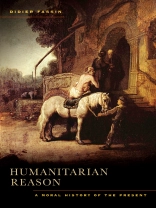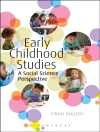In the face of the world’s disorders, moral concerns have provided a powerful ground for developing international as well as local policies. Didier Fassin draws on case materials from France, South Africa, Venezuela, and Palestine to explore the meaning of humanitarianism in the contexts of immigration and asylum, disease and poverty, disaster and war. He traces and analyzes recent shifts in moral and political discourse and practices — what he terms ‘humanitarian reason’— and shows in vivid examples how humanitarianism is confronted by inequality and violence. Deftly illuminating the tensions and contradictions in humanitarian government, he reveals the ambiguities confronting states and organizations as they struggle to deal with the intolerable. His critique of humanitarian reason, respectful of the participants involved but lucid about the stakes they disregard, offers theoretical and empirical foundations for a political and moral anthropology.
สารบัญ
Preface to the English Edition
Acknowledgments
Introduction: Humanitarian Government
PART I. POLITICS part
1. Suffering Unveiled
Listening to the Excluded and the Marginalized
2. Pathetic Choice
Exposing the Misery of the Poor
3. Compassion Protocol
Legalizing Diseased Undocumented Immigrants
4. Truth Ordeal
Attesting Violence for Asylum Seekers
LIMEN. FONTIERS
5. Ambivalent Hospitality
Governing the Unwanted
PART II. WORLDS
6. Massacre of the Innocents
Representing Childhood in the Age of Aids
7. Desire for Exception
Managing Disaster Victims
8. Subjectivity without Subjects
Reinventing the Figure of the Witness
9. Hierarchies of Humanity
Intervening in International Conflicts
Conclusion: Critique of Humanitarian Reason
Chronology
Notes
Glossary
Bibliography
Index
เกี่ยวกับผู้แต่ง
Didier Fassin is the James D. Wolfensohn Professor of Social Science at the Institute for Advanced Study in Princeton. He is the author of When Bodies Remember: Experiences of AIDS in South Africa (UC Press) and coauthor of The Empire of Trauma: An Inquiry into the Condition of Victimhood.












